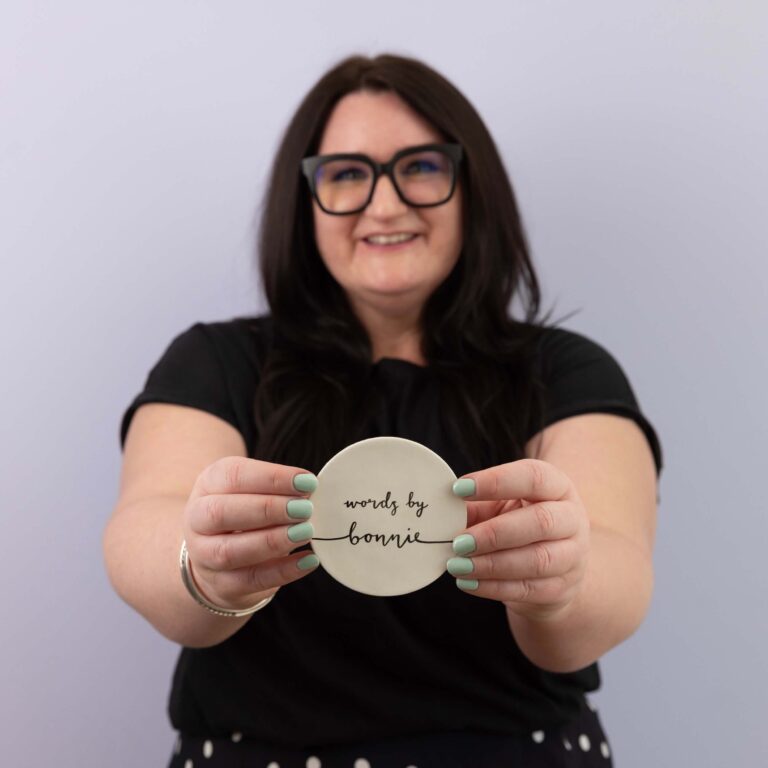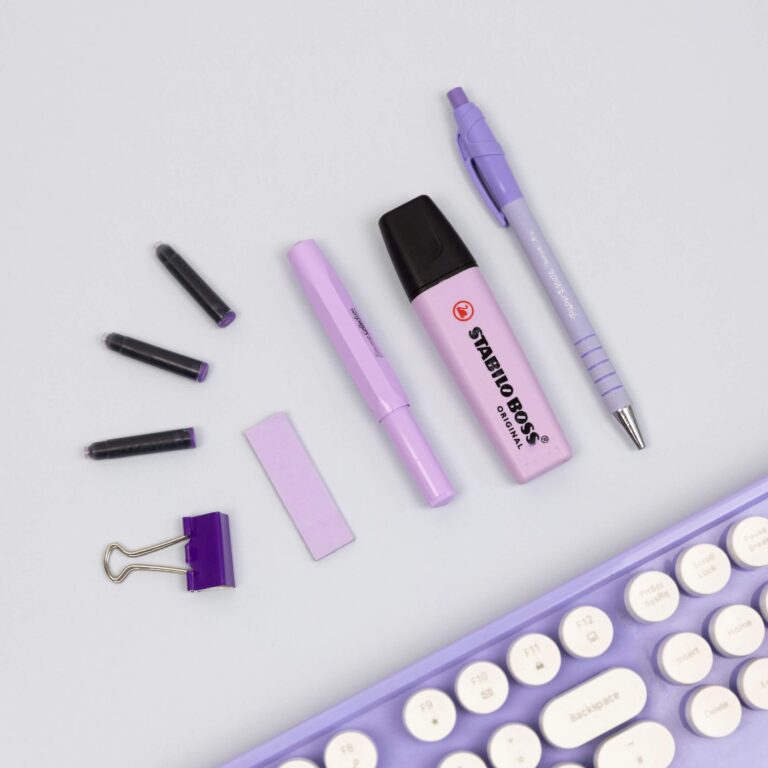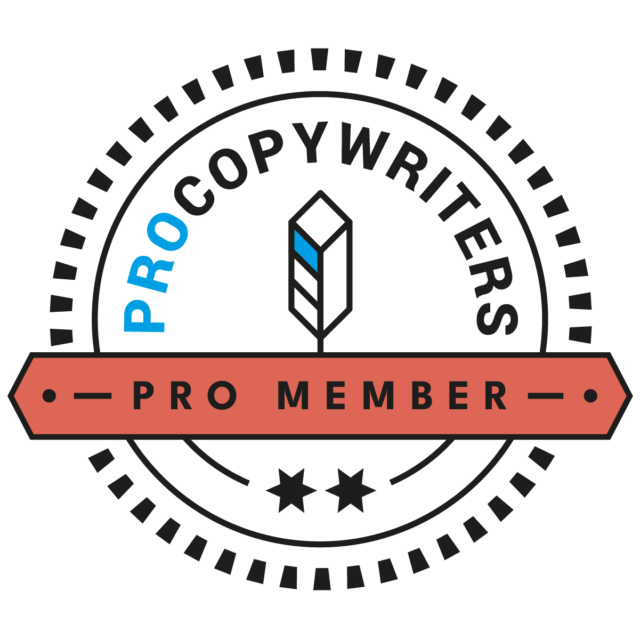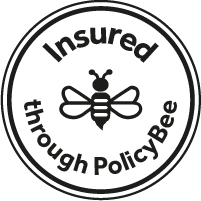Hey copywriter pal, this blog is a breeze to read, but if you want to just click on a heading up here, it’ll take you straight to that section to save you some time.

4 ways to be super ready for a discovery call as a copywriter
A wonderful thing has happened- you’ve got an enquiry for your copywriting services! Yay!
Take a second to congratulate yourself. Somewhere along the line, your marketing is working. (*More on this later.)
Now, before you get super excited about the project, there are a few important steps between enquiry and getting that contract signed/ deposit in your bank account. This blog is your step- by- step guide to turn a prospective client into a brand-new client.
With a good few years of freelance copywriting experience, I’ve had tons of discovery calls. Sometimes called chemistry calls, introductory calls, or enquiry calls. The names of these initial chats seem to change with the seasons, but they all do the same thing. It’s an informal chance for you and your prospective client to meet and get a feel for each other.
Here’s everything you need to know to impress your new client and transform them from “maybe” to “hell yeah”.
ONE- Copywriter support: Before the discovery call
Your work starts a few days before your scheduled discovery call. It’s time to put on your private investigator hat and do some digging. You need to find out as much as you can about the business you’ll be writing for.
Try to find out:
- What they do?
Get this information from the information the client gave you in their enquiry form answers or their initial email to you, but also get googling. Find out as much as you can about their products or services, their values, and their overall professionalism. - Who do they do it for**?
The enquiring client may tell you this in their initial communication with you (email/ form) but it should also be clear on their website. If it’s not clear who their ideal audience is, this is a strong indication of where you can help them.(**I know this should be “for whom do they do it” but I just don’t talk like that… but I also don’t want you thinking I don’t know where prepositions go. Hence this disclaimer, k?) - What do they need from you?
Your prospective client is likely to indicate exactly what writing they need but you should also do a little investigation. They might ask for a particular type of writing, but in your professional opinion, is that what they need? There’s no point in you writing them great blog posts if those posts live on a non- functioning, unclear website. They may need to start with some fresh website copy, which you might need to explain to them. Likewise, their copy might already be great and it’s their emails which need some attention. Use your best judgment on what would help them most. - What is great about their current copy?
Try to identify the client’s tone of voice, any on- brand phrases, any interesting calls to action. Any hint to their personality or what makes them awesome should also be noted down. - What seriously needs to be improved?
Ok, you probably shouldn’t share the entire list with the client- it could be a bit overwhelming, and a little risky on your part- but it’s helpful for you to know what you’re dealing with. Look at all the copy on their website already and note what isn’t working. This includes creatively, but also structurally, and technically. - What is their online presence like (social media, reviews, website)?
Get an overall impression of the professionalism, consistency, and clarity of the business’s messaging. What do their clients already know about them, and what do their customers need to know? - Who they know?
Protecting yourself, your time, and your business is important. Does anyone in your freelance network know this client? Have they worked with anyone you know? Can you discreetly- and I mean discreetly– ask anyone if they have any information about the client? This one is probably only important if your previous research has suggested the prospective client is in any way dodgy or scammy. Anything to save you time or energy is a good idea.
TWO- Copywriter support: During the discovery call
Your main objectives in the discovery call are:
- To give your prospective client a great impression of you. They should feel you’re competent, qualified, and professional.
You’re going to do this in a number of ways. Being on time for the call, listening intently as your prospective client speaks, writing notes, and communicating with them clearly will help them feel they can trust you and your skills. Smile lots, refer to the research you have done in advance, and respond fully to any questions they ask you. - To gather important information about the prospective client, their business, their audience, and their aims.
Come to the meeting armed with questions based on your research. You should leave the meeting knowing exactly what the client needs and what their goals are with copywriting. You should also get an idea of the deadline they’d like you to meet so you can plan your calendar accordingly.
- To communicate exactly what you can do to help them, and what the next steps of working with you is like.
This one is tricky. Do not, under any circumstances, appear sales-y or pushy at any time. So, while you should explain to your prospective client exactly what you can do, and the best course of action for the project, ensure you’re giving them lots of time to think about it all. This might mean they need more services from you than they anticipated, or that the project could be more involved than they expected. It’s your job to explain that you want the best for them and the project, and what that looks like.
Honourable mention: copywriter pricing
Your prospective client is going to come to the discovery call with questions about pricing. Hopefully your website has prepared them for an idea of the cost of your services, but they’ll still be thinking about the budget. If you don’t have a link to the ProCopywriters survey on day rates, make sure you share it.
It’s your job to communicate your prices in the call, but this should be handled extremely delicately.
If they’re willing to share, ask your prospective client what their budget for the project is. If this question feels too direct, ask them to share a ballpark figure. A gentle way into this question is to share how you come up with the quote for clients. I explain that I work out how long a project will take me, how soon the deadline is, and I use my day rate as a base figure. I might also share a ballpark price for the last similar project I did.
There’s a reason I am not specific on the price in the call. This call is for information gathering, and you might find something out in the call which could massively affect the fee for the project. For example, they might request an extra round of edits, or a super quick deadline. Coming up with a price on the spot in the call means you’re putting a lot of pressure on yourself, and you’re tying yourself into a fee without thinking about it. Too high a number and your prospective client will be immediately turned off. Too low a number and you’ve lost lots of money. Trying to change the quote after the call could make you seem untrustworthy or disingenuous.
Instead, gather the information, take a day to think about it all, and send them a proposal for them to consider.
Questions to ask in the discovery call
Here are things I always ask so I am fully prepared to write a solid proposal (in no particular order):
- What do you struggle with most when it comes to copy?
- Have you worked with a copywriter before?
- Do you know what your tone of voice is? (If not, do you need help with that?)
- What’s the most important thing your customers need to know from you?
- Where did you hear about me? (*This is especially important to know which of your marketing tactics are most effective.)
- What are your long- term plans with your business?
- What made you book the call with me today?
- When do you need your finished copy?
- Ideally, what do you need from me?
- Do you have any questions for me?
THREE- Copywriter support: After the discovery call
Your work is far from over after the discovery call. It’s time to write the proposal.
Here are five things which should be in your proposal:
- About me, including a picture of me
This is a reminder to them exactly who I am and what I can do. I’ll include information about my qualifications and experience. This is to remind them why I’m a great copywriter, but also because they have probably spoken to a few other copywriters, and they genuinely might have forgotten who I am. - My terms and conditions
Even though I would have covered this in the discovery call, I’ll cover it again in the proposal. This includes that it generally takes a month to write a website, and I include one round of edits, and I only start work once I have a 50% deposit. - Three (bespoke) packages
I’ll write up exactly how I can help my prospective client in three packages. There’s one which is the least amount of work/ lowest fee but will still have some impact for the client. The next package is everything the client asked for. And the third package is everything the client asked for, along with extra features which I can see they’d really benefit from. I don’t mind which package they choose, and I do not benefit from them choosing a particular package. It’s my job to help my prospective client to the best of my ability, and to do so within their budget. - What the next steps are
I make it super clear what they have to do to secure their spot in my diary. I also explain that they can take up to 30 days to think about it and I’ll still honour their quote. - Testimonials
I want to leave them confident in my abilities as a copywriter. Even if they don’t decide to work with me on this occasion, they might need me in the future, or they might recommend me to someone in their network. So, sharing great feedback on my work is a good idea.
FOUR- Copywriter support: Miscellaneous helpful discovery call info
Be careful not to spend too many hours on your preparation here. This is unpaid time, and there’s no guarantee your prospective client will turn into an actual, paying client.
Do not go into lots of details about what you’ll do for the client and exactly how you’ll do it. This is an extremely hard line to walk. Of course, you want the prospective client to feel confident that you know what you’re doing and you have lots of ideas, creativity, and experience to bring to the project. But, you also don’t want to give them all your valuable ideas for free.
I remember a call I had with a potential retainer client for regular SEO blogs. In the call, we discussed lots of blog ideas and blog titles, specific to her business. She didn’t end up going with me, but I did see blogs with those same exact titles on her website some months later.
If you don’t feel you’ll be a good fit for each other after the discovery call, there are professional and kind ways to say “no thank you”. In the past I have emailed and explained: ‘after a lot of thought, I don’t feel I’m the best copywriter for you because [reason]’.
A good reason is because you don’t have enough experience in that industry, or you aren’t aligned on values, or you aren’t aligned in budget. Keep it positive and clear, so the door is open for future projects. You could also be extra helpful and share the contact information of another couple of copywriters who could help the prospective client. Perhaps contact the other copywriters first to see if they’d be up for it!
If your gut feeling is “this is not a good fit” do not push on with the project. Always, always listen to your gut.
Need some help with some strategy? Or any other copywriting support? If you think I could help you then I definitely want to hear from you. Pop your details in this form, or shoot me an email, and let’s chat.











